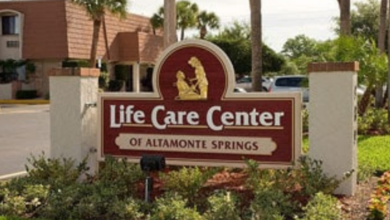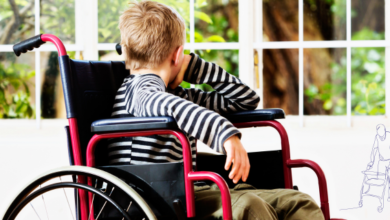Delving into the Details of the Florida Incident
The Legal Framework Governing Nursing Home Accountability
- Federal Regulations (Medicare and Medicaid) 📌 Nursing homes that participate in Medicare and Medicaid programs must comply with federal regulations outlined in the Social Security Act. These regulations establish minimum standards for patient care, resident rights, and facility operations. Failure to comply with these regulations can result in significant penalties, including fines, suspension of payments, and even closure of the facility.
- State Regulations 📌 Each state also has its own set of regulations governing nursing homes. These regulations often supplement the federal standards, providing more specific requirements and addressing local needs. State agencies are responsible for licensing and inspecting nursing homes to ensure compliance with these regulations.
- Negligence Law 📌 In addition to regulatory violations, nursing homes can also be held liable for negligence under state law. To establish negligence, a plaintiff must prove that the nursing home owed a duty of care to the resident, breached that duty, and that the breach caused harm to the resident. Common examples of nursing home negligence include inadequate staffing, failure to prevent falls, medication errors, and neglect of hygiene needs.
- Corporate Liability 📌 Increasingly, legal cases are exploring the concept of corporate liability, aiming to hold the parent companies or ownership groups of nursing homes accountable for systemic failures that contribute to patient harm. This is particularly relevant in cases where nursing homes are part of large for-profit chains that prioritize profits over quality of care.
Potential Implications for Nursing Home Policies and Practices
- Increased Staffing Levels Nursing homes may need to increase their staffing levels, particularly the number of registered nurses and certified nursing assistants, to ensure that residents receive adequate care and supervision. This could require significant investment in recruitment and retention efforts.
- Enhanced Training Programs Nursing homes may need to enhance their training programs for staff, focusing on areas such as medication administration, fall prevention, wound care, and recognizing signs of abuse and neglect. Training should be ongoing and regularly updated to reflect best practices.
- Improved Quality Assurance Measures Nursing homes may need to implement more robust quality assurance measures, including regular audits, resident surveys, and incident reporting systems. These measures should be designed to identify and address potential problems before they result in harm to residents.
- Increased Transparency and Communication Nursing homes may need to improve their transparency and communication with residents and their families. This includes providing clear and accurate information about the care being provided, promptly addressing concerns, and involving residents and families in care planning decisions.
- Investment in Technology Nursing homes may invest in technology to improve patient safety and quality of care. This could include electronic health records, medication dispensing systems, and monitoring devices to detect falls or wandering.
The Impact on Residents and Their Families
The Role of Government Oversight and Regulation
Government oversight and regulation play a crucial role in ensuring the quality and safety of nursing homes. Federal and state agencies are responsible for licensing, inspecting, and monitoring these facilities to ensure compliance with regulations. However, critics argue that government oversight is often inadequate, with too few inspectors, infrequent inspections, and weak penalties for violations.
- Increased Funding for Inspections: Advocates are calling for increased funding for government agencies to hire more inspectors and conduct more frequent and thorough inspections of nursing homes.
- Stronger Penalties for Violations: Stronger penalties for violations of regulations, including fines, suspension of payments, and closure of facilities, are needed to deter nursing homes from cutting corners and putting residents at risk.
- Improved Transparency: Greater transparency is needed in the reporting of nursing home violations and the results of inspections. This would allow residents and their families to make informed decisions about where to seek care.
- Enhanced Data Collection and Analysis: Enhanced data collection and analysis are needed to identify trends and patterns of abuse and neglect in nursing homes. This would allow regulators to target their oversight efforts more effectively.
The Potential for Criminal Charges and Civil Lawsuits
- Increased Scrutiny from Prosecutors The incident may lead to increased scrutiny from prosecutors, who may be more willing to investigate and prosecute cases of nursing home abuse and neglect.
- Greater Likelihood of Successful Lawsuits The incident may increase the likelihood of successful lawsuits against nursing homes, as juries may be more sympathetic to plaintiffs who have suffered harm due to negligence or abuse.
- Significant Financial Penalties Nursing homes that are found liable for negligence or abuse could face significant financial penalties, including compensatory damages, punitive damages, and attorney’s fees.
- Damage to Reputation The incident could cause significant damage to the nursing home’s reputation, making it difficult to attract new residents and retain existing ones.
The Long-Term Impact on the Nursing Home Industry
The Florida nursing home incident could have a profound and lasting impact on the nursing home industry. It could lead to a fundamental shift in how nursing homes are regulated, operated, and held accountable for their actions. Moving forward, it’s essential to prioritize the following:
- A Culture of Safety: Fostering a culture of safety in nursing homes is essential. This includes prioritizing patient well-being, encouraging staff to report concerns without fear of retaliation, and implementing robust quality assurance measures.
- Empowering Residents and Families: Empowering residents and their families to advocate for their rights is crucial. This includes providing them with clear information about their rights, encouraging them to participate in care planning decisions, and creating avenues for them to voice concerns and grievances.
- Strengthening Government Oversight: Strengthening government oversight of nursing homes is essential. This includes increasing funding for inspections, enacting stronger penalties for violations, and improving transparency in reporting.
- Promoting Innovation and Best Practices: Promoting innovation and best practices in nursing home care is crucial. This includes investing in technology to improve patient safety, supporting research on effective care models, and disseminating best practices throughout the industry.
Ultimately, the goal is to create a nursing home industry that is characterized by quality care, patient safety, and accountability. This requires a collective effort from regulators, healthcare providers, residents, families, and the public.
Additionally, continuing to learn and evolve can help bloggers adapt to the rapid changes in the online world and social media. This allows them to use new strategies and innovations in areas such as search engine optimization (SEO), data analytics, and content marketing. Thus, continuous development can help bloggers to enhance their status and increase their influence on the audience and the online community in general.
Ultimately, bloggers’ commitment to continuous learning reflects their true desire to grow, evolve, and provide added value to their readers, which leads to building strong and sustainable relationships with their audience and achieving continuous and sustainable blogging success.




